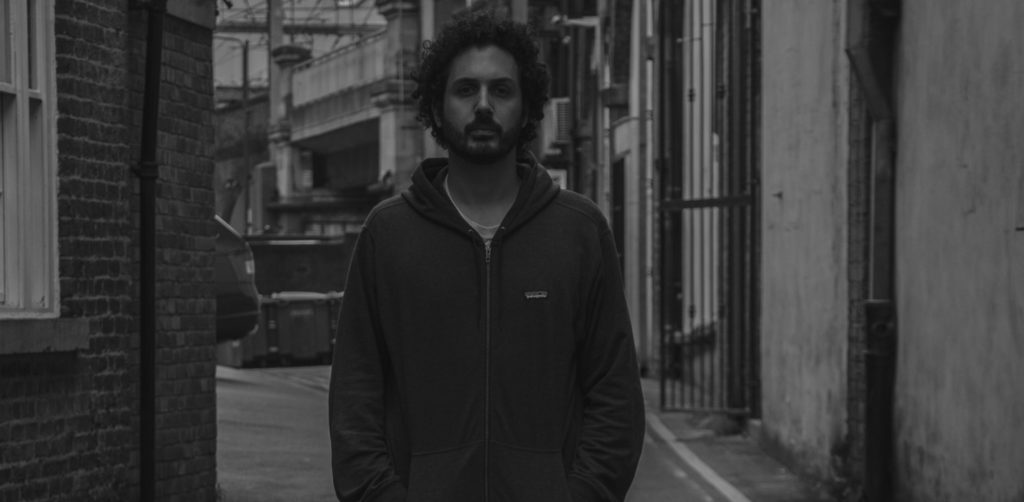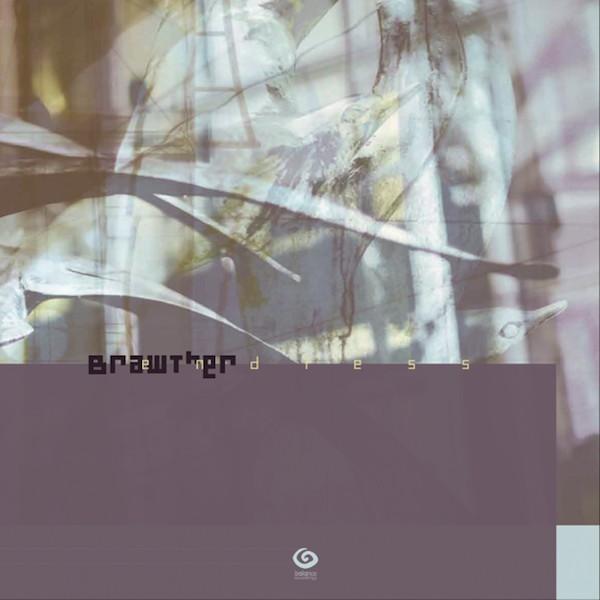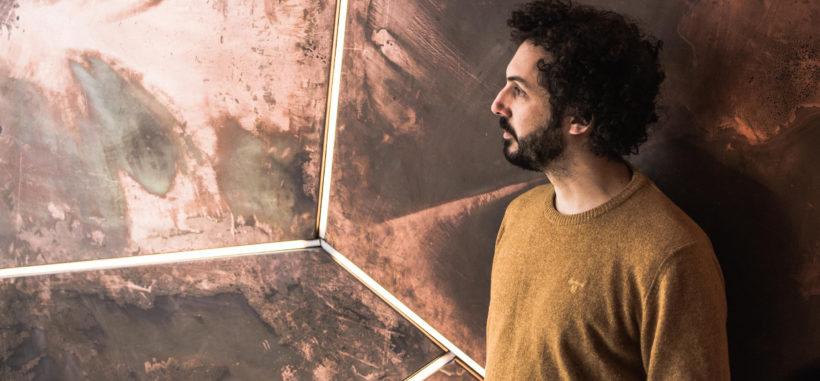In Conversation With: Brawther
If you were to read the opening line of Brawther‘s biography, you’d be forgiven for thinking this might be a somewhat short conversation.
“Born in Paris, now living in Leeds and raised on house – that’s just about all Brawther wants to tell you.”
Thankfully though, you shouldn’t believe everything you read in the media. In fact, when the time came for Alexandre ‘Sammy’ Gouyette and I and to speak over Skype on a rainy Monday morning in April, I was met with a warm and engaged character, albeit tired and apologetic for being ever so slightly tardy – completely understandable for someone just back from a tour of Japan and with an 18 month old toddler under his wing.
Brawther is responsible for some of the most ethereal productions in house music this side of the 20th Century. Keeping an unwavering focus on a ‘true skool’ mentality and authenticity in his sound, his music harks back to the archetypes of Chicago and New York with plentiful smatterings of the deep sounds of Ron Trent‘s Prescription and Chez Damier‘s Balance Recordings. And it’s with the latter that he first found a family via an impromptu MySpace encounter with Chez back in the late noughties. That relationship reached a zenith in 2015 with the release of Endless, a pieced-together collection of highly sought after club cuts and unreleased tracks from his tenure with Balance and one that received critical acclaim across the board.
Last week saw the release of Transient States, an album much more in the classical sense of the word, one that Brawther considers to be his debut and that sees him take to a variety of styles and tempos like a fish to water. There’s echoes of Nightmares on Wax, Rhythm & Sound and Vikter Duplaix, but we’re never far from his trademark dub-drenched melodies or booty-shaking bass a la Dungeon Meat, his side project with Tristan da Cunha.
Our conversation touches on his idea of the concept of an album, which he ultimately explains is to ignore all the rules and preconceived notions of what it can or should be. For someone apparently so withdrawn, he has plenty to say and for close to an hour we discuss breaking boundaries, overcoming commercial success and ignoring the words of trolls and media alike. Buckle up, this one’s no holds barred.

You’ve just got back from Japan, how was the tour?
It was amazing, this was my sixth time in Japan. I’ve got friends there and I’ve always gone there for digging and other personal reasons, but this was the first time I’d been invited. I was playing for Fumiya Tanaka’s party which has been running for I think 25 years.
Which clubs did you reach?
Circus in Osaka and Contact in Tokyo.
And you’re off to Australia at the end of the month.
Yes, it’s my fourth time there touring.
So you’re obviously touring quite a bit. Are you finding the time to be recording as you go? Are you one of these people who can just open up their laptop in the airport and get cracking making tracks?
No, I’ve tried. I did make tracks that either were started on a plane or I contributed to them (there) and they did come out, but it just doesn’t work for me. First of all I don’t really like to take my computer anymore because it’s bulky and it’s just complicated. I just spend my time on flights watching series and killing time, rather than being creative because I really need to be in the studio for that. I’m a tall guy, I’m 6”4 so if you’re awkwardly seated in a small low cost flight, you don’t really want to fire up your computer with all the noise… [laughs].

So let’s talk about the new label, Negentropy. I really loved the word, first of all. I wasn’t familiar with it so I had to look it up and I roughly take it to mean ‘things coming into order’, is that about right?
Yes, well it’s a physics concept. Entropy leads to death basically, so in short it means that at the moment you’re living and your organism is in order and whatever is there, it’s doing it’s job. Imagine it as a puzzle, in order. But once a piece starts dying, the whole system starts to decrease. It’s a bit like a match, if you light up a match, the time it takes for the match to go to complete ashes is kind of what entropy is doing. So physical objects with time will lead to death. And negentropy is the opposite, whatever keeps it alive is like life. So life is like an example of negentropy.
It’s a beautiful theme and I guess it ties in with the title Transient States, with things being in flux, moving from one state to another. Did it represent your creative process when it came to making this album?
Well first of all, the name of the label isn’t something I was thinking of when I was writing the album. The label name I used for a track in 2011. At the time I was reading about quantum physics and that’s how I became aware of it. But the theme behind it is perfect when it comes to the idea of making music.
But the album title…everything comes and goes, we’re constantly evolving in our life, always moving forward and we’re defined by where we’ve lived and what’s inspiring us so when I was in the studio, this is what it represents. Every day is a new day, every day I’m making music. I don’t want to be doing just one style of music always, just going with the flow.
That makes sense. It feels like whereas Endless was a bit more focused on the club cuts, this album was definitely you putting on a lot of different hats.
Yeah. Endless is an album but it was only a collection of works over five years, so it’s not like I made all the tracks specifically for an album. Whereas this one, I consider it my first album – all the tracks are new and all being released via this LP. This time, I wanted to work with musicians. It was the first time I was hiring a guitar player, I even hired a saxophone player and I didn’t even use his bits in the end. But it was great, it really helps to work with really talented people – it just feels like it takes your music to another level in a way.

How did you come to pick those musicians?
From friends and word of mouth and recommendations. I used to have a home studio but my son took over the room so I had to outsource a studio room for just over 6 months in Leeds. It used to be owned by the Utah Saints, they had a nice large room and it was the first time I had a really big room to put all my gear in. And once the album was done, I gave the keys back and my studio is now in storage. So I had the space for someone to come and play the trumpet, those instruments are really loud and I recorded in the same room, I didn’t have a booth. A booth is good, but it’s still small – so a large space works better. I managed to record a guitarist, keyboard player, trumpeter and sax.
So it must have been quite an investment for you then.
Yeah definitely, but you know I think it was worth it. It’s not all about how much money I’d be making back on the sales, but you know the actual experience of having these great musicians come and spend a few hours was really inspiring. So just for that it was definitely worth it.
What really struck me about the album was that you’ve got a variety of styles there – acid jazz, dub techno, jazz house a la St Germain – but all of them are very faithful interpretations of those styles. It came across that you’ve been making these sorts of tracks for quite some time, but perhaps only now felt safe enough to explore them. Is that how it was?
Well these are influences that are part of me. At a time I was obsessed with reggae and digital dub, and I just wanted to give it a go and have fun in the studio and I was happy that it was good enough to go on the album. I did a lot of tracks and it’s difficult to be satisfied with your work, but there’s a moment where you have to draw the line and decide to release it and then it’s not really yours anymore. It’s a weird relationship. And now I’m already on to the next thing and it’s completely different to this album, and I’m going to push myself to do better. I’m always going to find faults, but now it’s there and if people enjoy it, great.
That’s the archetypal perfectionist artist.
Yeah, because you don’t do music for approval for others. For me that’s never the case. I’m trying to enjoy it, it makes me tick.

Do you have a particularly strong opinion on what an album should be?
Not really. For me it was more the idea of working towards a body of music that I could present as an album, rather than have a concept. I do actually want to do very specific genre projects, that would run from start to finish – but I don’t think there are rules.
There is no rule and as an artist if you think too much about that it conditions what you are going to be doing.
There’s always a lot of conversation in electronic music about whether albums will end up being just a collection of club tracks, or the style they’re best known for.
Everybody has their opinions. Some people say all albums can’t be club tracks, banging, boring tools from start to finish – but that’s just their opinion. There is no rule and as an artist if you think too much about that it conditions what you are going to be doing. And the most important for me is not to be conditioned too much and put out what you want to put out. You’re not in a competition to fit formats, but it’s tough.
Do you find that you have to actively remove yourself from those pressures, not look at what people are writing about your music?
Yeah, I’ve tried you know. I’ve done some PR obviously and sometimes you read things and see the ratings, but I try not to look at it. It doesn’t really matter to me. Like I say, I’m kind of already on the next thing. The comments section of the internet, the trolls…if you listen to that too much you’ll go crazy. If I meet a fan and he wants to tell me something, that’s great but with the internet there is the proximity, you can read these things that can really hurt. I have friends who have done tonnes of good stuff, but the only negative comments can shatter them.
You’ve got quite a knack for making beautifully progressive tracks that really take you somewhere, creating real moments and in the past I read in an interview that you’d referred to your own productions as ‘true skool’ music. Could you explain what that means from your perspective?
Well it’s not my term, but it’s this idea that it’s not new, it’s not old but it’s this attitude that has been there from day one. If you think of the old school music that we like, at the time they weren’t thinking it was old school. Just like whatever is new school, they want to say that it’s a new genre. I wouldn’t say it’s a formula, it’s more like a feeling.
Authentic, an honesty to the craft.
Yeah. Rooted in the past, looking forward but it’s not just a sound, it’s an attitude. And it’s more like a way of positioning yourself against old school or new school.
There’s a couple of big stand out tracks on the album for me, one being ‘Brudan in Leeds’ which has one of the most unique uses of a vocal sample that I’ve ever heard. It’s not introduced until about 4-5 minutes in, it appears out of nowhere and gives this huge crescendo and then disappears again and it’s almost like, did that really happen?
Yeah so this one I made with Daniel Paul from Cab Drivers, Brudan is the project we have together. I actually added the vocal towards the end of the process and Daniel was saying, “I don’t know, it sounds kind of like an elf” and I said “Well that’s good, that’s what I wanted, that it sounds like an angel coming from the sky”. So if people get that feeling on the dancefloor and it’s uplifting, then I’m happy, that’s what I wanted.
Have you been playing out many of the tracks from the album?
‘Jaxx Freax’ is the one I’ve played out the most I think. Usually I’ll play my music when it’s unreleased, but once it’s out I don’t usually play them anymore. I want to play tracks that people don’t know, or I think they don’t know. Once it’s out, I don’t find that so exciting anymore.
‘Jaxx Freax’ is the one that you can smell a bit of Dungeon Meat on.
Yeah I guess so. ‘Dungeon’ is another word like ‘true skool’. All of the tracks we made as Dungeon Meat are all quite different but there is this attitude to it. But it’s got that sleazy vibe.
Are you still finding the time to make music with Tristan?
A bit less, because my son was born a year and a half ago and Dungeon Meat was taking the wind out of my sails a bit to be honest. ‘Fuck Off Track’ did really well, you know much better than we thought it would actually, it had some kind of commercial success really in a way. DJs like Hannah Wants and Jamie Jones were playing it. So it was a blessing and a curse in a way because people wanted more of that and we were getting the wrong kind of gigs. So we’re just taking our time, we did a few live shows at Sankeys and fabric and we’ve got an EP that’s almost ready that we’ve been playing out for more than two years now. We just need time to wrap it up.
Luckily Dungeon Meat was doing quite well at the time and I just needed to reconnect with my solo work. I never really needed to release a lot of music before. I like to think of my career as like a train and the music I make as like fuel, so the more music I make the more I keep going. After the Endless project, I got a lot of gigs but then it cut back quite a lot and luckily I had Dungeon Meat. So whenever we get together, we try to continue the vibe of what we started, but with myself I feel a bit more free.
It’s funny, I never play the ‘Fuck Off Track’. When we made it, in my mind I wanted to do something for the DC10 Terrace and then I managed to play it at the Terrace the summer before it was released…but you know, you just keep going. We get a lot of EPs from people who want to release on Dungeon Meat, but they just don’t get it. It’s not about a sound or trying to do drum rolls or making it sound pounding, it’s an attitude. People who understand true house and techno, they get it. It’s quite likely that the people we sign we have a lot in common with in terms of our musical tastes, that goes deeper than just the sound of now and the current track.
Young people sometimes don’t have that experience to understand where we came from, why we did it. For them they can do something that sounds like a current banger and reproduce that and create a formula. It’s not true skool because it doesn’t come from the same place, it’s being inspired by the past and using the productions of our day to keep the flame burning but not trying to sound old – it’s just to get that energy from the old. Because actually, the old tracks that we love don’t necessarily sound dated – so for a young person, they won’t know it’s old, it’s only the old people that know that it’s ‘old skool’ but really it’s ‘true skool’.
https://soundcloud.com/trax-magazine/premiere-brawther-i-cant-explain-feat-javonnttenegentropy
Talking about commercial success then, let’s talk about ‘I Can’t Explain’ which to me sounds like a future classic. It’s got club sensibilities, but also a catchy chorus, it sounds immediately recognisable and it’s very radio friendly.
Yeah this one is an odd ball, it’s an enigma. Funnily enough I don’t know how it’s going to be received and I’m kind of curious to see. You always think people are going to love one track and then they love another. This one has the most production in, there’s a guitar being played, a vocalist, the arrangement has more of a song structure because that’s something I want to learn and to work with singers. On a personal level I just want to understand more how music is made so for that track it does have that format that you’re talking about. Your ears are already used to hearing that kind of stuff.
It’s got that broken Bugz in the Attic kind of feel to it which is still very much in vogue.
Yeah I love this. I don’t really come from that scene at all and I’m not really a great musician myself. When I did that track, I did the bassline and I did the theme too, but I had it played again by a real keyboard player called Dan Goldman who does music under the name JD73 and he played with Morcheeba.
What was it like working with Javonntte on that one? Did he come to Leeds?
No, no. We were doing Facebook Chat sessions. He wrote most of the lyrics, I wrote a verse. Javonntte is really a super talented dude though…you should see his posts on Facebook. Every other day, he’ll post a new video of him jamming or working with other musicians. He’s a dancer, he plays keyboard, bass, harmonica… Anything you can think of, the guy is really good at and I think he’s in his late 40s or 50s. My friend from Chicago introduced me to him, Garrett David, because he’s doing a track with him which is coming out soon.
Did you have any new toys that you were playing with on this record?
The synth I used the most is like a clone of the Arp 2600 called a TTSH and it’s amazing…I think I used it on almost every track. It’s super versatile, it’s a mono synth, semi modular and it’s just great for getting all kinds of sounds and tones and jamming them live.
I wanted to ask you about the ‘Khawuleza’ remix that appeared on Endless as this one really fascinated me. From what I can see, the vocalist Vusa Mkhaya used to be part of a Zimbabwean group called Isingizi but I couldn’t find much more on Jeremiah. Can you tell us a bit about how this one came about?
So the original of this track was produced by Jeremiah, an Austrian producer who was quite a big name in deep house in the ‘90s, and he released this record with a singer who I think must have been living in Vienna – I don’t really know. I think it was back in 2010, Chez asked me to do a remix and I was living in Paris at the time but I completely forgot about this project and I didn’t take it any further. So when I was compiling Endless, I wanted to throw in an unreleased track so I went back to my old computer and saw it and thought ‘Wow’. I didn’t actually do anything else to it, I just mixed it better and rearranged it a little bit. I did a lot of different versions of that actually, a few stripped down, even one sounding like Dungeon Meat at the time.
That sound, I guess the Balance sound, seems to have real resonance in South Africa.
Yeah you listen to the kwaito stuff in the ‘90s and it just sounds like Blaze or Masters at Work. The producers were really influenced by the New York sound and I guess they’re used to it and there seems to have been a big resurgence in the last 10 years. It’s huge in South Africa. There’s a number of artists from the UK who are really big in South Africa..
Atjazz for instance.
Yeah, true legend. Andy Compton from The Rurals. I always get messages from South African people but I’ve never been there yet. They like it deep there.
Can you tell us about your relationship to Leeds?
Well I was living in Sweden and I thought I was going to live there for good but when I came over for a holiday I just felt attracted to Leeds. I had already started to form a good relationship with Tristan before I moved and when My Love Is Underground parties were starting in London. When I was still in Sweden, I remember playing at Basics and the opening of The Garage which was a short-lived club that was amazing. And when I came back I was really inspired by it and thought “Fuck it man, I’ve only been in Sweden for nine months – let’s just go to Leeds”. But I am thinking of relocating with my family to Lisbon eventually. There’s good vibrations there, for me it’s one of the best places to be in the world.
Will you still be working with Chez and Balance do you think?
Yes of course, I consider Chez a close friend. I’m not so much going to be working on Balance at the moment because I have my other adventures. I still run Courtesy of Balance for the time being, but I’m trying to fly on my own at the moment.
How are you looking for summer?
Well I’ve got this new agency called One House Artists and I’m going to the States in May and I’m back there early June. Also going to Slovenia, a festival in Amsterdam in June. It’s growing!
Thanks very much for your time.
Brawther’s Transient States LP is out now on Negentropy, available on vinyl and Spotify.










